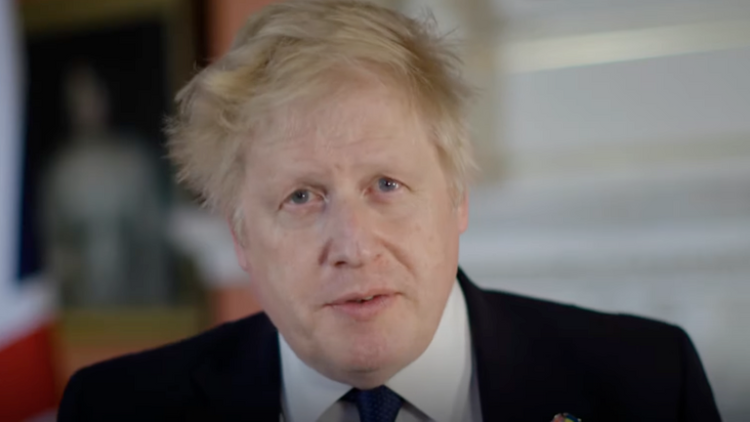By Ben Kerrigan-
WhatsApp messages between key figures have emerged, casting a shadow over Boris Johnson’s leadership during the turbulent times of the pandemic.
The messages, exchanged between Dominic Cummings, Cabinet Secretary Simon Case, and ex-No 10 communications director Lee Cain, reveal accusations that Johnson constantly changed his mind.
While this raises questions about Boris Johnson’s (pictured)ability to lead, it is essential to consider the unique challenges posed by the pandemic and whether such changes in leadership should be viewed as a sign of weakness.
The messages, sent in September 2020, capture a pivotal moment in the pandemic’s trajectory, approximately six months after the outbreak first engulfed the nation.
In these messages, Case, the most senior civil servant, made a damning statement, asserting that Boris Johnson “cannot lead and we cannot support him.” Furthermore, he expressed concerns that the government was becoming a “tragic joke.”
While these statements might lead some to question Johnson’s leadership abilities, it is vital to place them within the broader context of the pandemic.
The Covid-19 crisis was an unprecedented event that required leaders to make decisions in an ever-evolving landscape. New data, research, and emerging variants constantly reshaped the understanding of the virus, often necessitating adjustments in policies and guidance.
Leadership during a pandemic is an intricate juggling act, as leaders must navigate the delicate balance between ensuring public safety and minimizing the socio-economic consequences of strict restrictions.
This balance requires a leader to adapt to the changing circumstances, as the situation evolves. Johnson’s willingness to alter his stance based on emerging information could be seen as a sign of flexibility, acknowledging the fluidity of the pandemic.
Critics of Johnson, however, have highlighted not only his adaptability but also other instances of leadership concerns during his tenure as Prime Minister.
One of the most prominent controversies has been the infamous “Partygate” scandal. Allegations emerged that government officials, including Johnson, violated lockdown rules by attending social gatherings at Downing Street while the rest of the nation adhered to strict lockdown measures.
These allegations have raised questions about Johnson’s credibility as the then prime minister, and his ability to set an example during a time of crisis.
The messages in question, combined with the Partygate scandal and other criticisms, paint a multifaceted picture of Johnson’s leadership. While the ability to adapt and make informed decisions in the face of a dynamic crisis is a valuable trait in a leader, it must be accompanied by transparency, accountability, and an unwavering commitment to leading by example.
The pandemic posed a challenge of unprecedented magnitude, and the scrutiny of leadership decisions must consider the unique and evolving nature of the crisis.
In retrospect, the case of Boris Johnson’s leadership during the pandemic offers a valuable opportunity to assess how leaders navigate uncharted territory.




